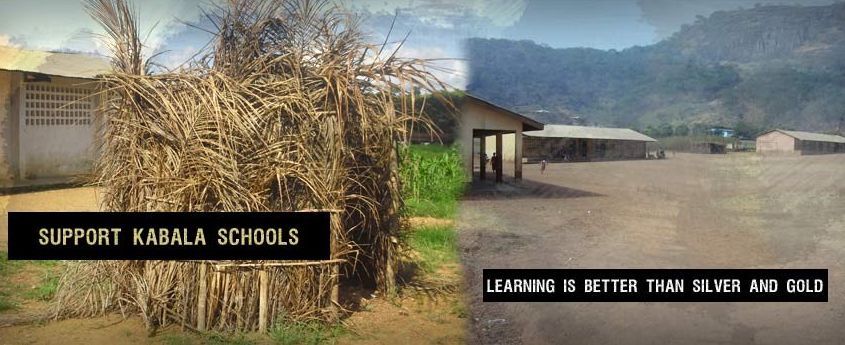Children From Kabala
The Koinadugu District, situated in the far northeastern corner of the country, was the vegetable garden and agricultural center of the country in the 1960/70’s. Kabala is the capital and the largest town in the District with a population of around 18,000.
Kabala is the regional center of Koinadugu, one of five districts in the north of Sierra Leone. Before the war erupted in March 1991, this was a bustling town that showed signs of becoming an economic center because of its strategic location.
Situated 75 miles away from the Guinean border and 42 miles from the northern capital of Makeni, Kabala connects the Kono diamond district through Yefin. With the coming of the war, the district was left in ruins, with many of its resident fled.
The city is largely Muslim and the population is largely from the Mandingo, Fula, Limba and Kuranko ethnic groups.
Kabala is divided by two chiefdoms; Wara Wara Yagala rule by the Limba’s center in Gbawuria and Sengbe chiefdoms rule by the Koranko centered in Yogomaia. Wara Wara is currently rule by Guaru Pagie Mansaray and Sengbe is rule by P.C. Allie Ballah Marrah III
The town is known for its cloth and tailoring, and especially for the making of the “ronko” gown, a traditional Limba and Koranko war shirt which is believed to have supernatural powers. There is no electricity other than individual generators. There are medical facilities, the government hospital and two clinics.
Koinadugu faces all the obstacles of rural poverty in a developing country. Most villages have no healthcare beyond traditional medicine while the district has among the worst health indicators in the nation.
Koinadugu District is the poorest district in the entire country. The district also faces major challenges in education and gender equality, which are fundamental components of development. Many villages in the district lack even a single school; the district literacy rate stands at 21%. Women’s literacy rate is less than half that of men’s and gender issues merit special attention in light of harmful traditional customs and practices.
Food security also remains a major problem, with agriculture largely limited to subsistence-level farming and lacking the necessary expertise that could improve cultivation practices. The district faces among the highest levels of agricultural and asset poverty in the nation. And presently, most of the farming produces are exported to bigger cities to gain the maximum profit. So this creates inflation on prices for fresh product in Kabala. With the excellent soil and climate conditions, this region is ideal for farming, so with a good initiative on farming we can once again be known as the richest area for agriculture in the nation.
Life in the rural regions is incredibly hard for those who live there, and such struggles have become a pressing issue in Sierra Leone as the country endeavors to stem the flood of people moving into the overcrowded capital city. In the districts like Koinadugu, tiny isolated villages are spaced miles apart. Transportation is both costly and dangerous and the roads are in a constant state of disrepair and during the rainy season completely impassable. Electricity and clean water are nonexistent. Banks, shops, computers – all the conveniences of “modern” living are incredibly rare.
Children from Kabala believe that with togetherness and time, they can make changes.
Children from Kabala was founded on June 22, 2011 by former residents of Kabala, Sierra Leone. The organization plans to expand over time and reach out to different regions across Sierra Leone.
They say education is power, Children of Kabala pleads to the rest of the “Children of Kabala”, as well as the world to help them empower their little brothers and sisters to have the opportunity to have a better future, and one day be able to help their beloved Sierra Leone.
Children from Kabala’s mission is to rebuild the community, develop capacity building programs for youth, and empower the community to make measurable and sustainable improvements in their health and well-being. This organization is a non-profit group to rebuild and empower the next generation of Kabala as a collective unit. They believe that with sharing ideas and networking meaningful changes in Kabala, in areas such as education, health care and socio-economic issues can be made.
Over the past two years Children of Kabala have been able to renovate two primary schools in Kabala, provide scholarship and bicycle to school and serve as a mentor to the youth in Kabala.
To learn more about this organization and its projects visit http://www.childrenfromkabala.org/
Stay with Sierra Express Media, for your trusted place in news!
© 2013, https:. All rights reserved.



